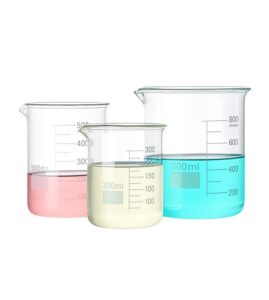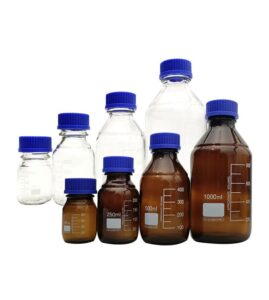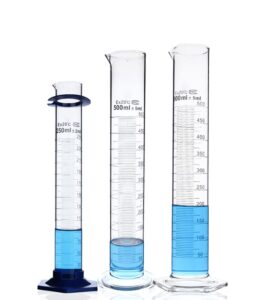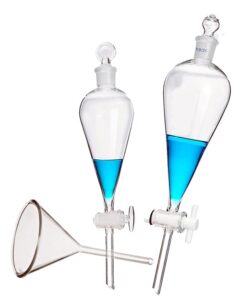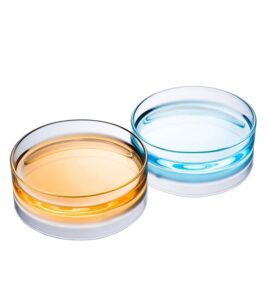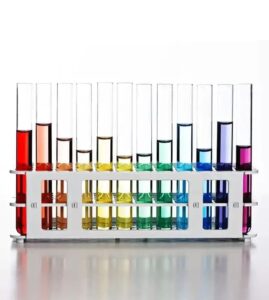Have you ever pondered the pivotal role glassware plays in scientific experiments? How often do you consider the impact of even the most negligible error on your results? Can you imagine the ramifications of overlooking the importance of precision in laboratory glassware?
Minimizing errors in glassware and reducing interference are fundamental to achieving flawless chemistry. The accuracy of volumetric measurements is paramount, and even minor deviations can lead to significant errors in results. By understanding and implementing expert strategies to maintain and calibrate laboratory glassware, scientists can ensure the integrity of their results and uphold the highest standards of research.
Read on to discover how you can achieve precision and reliability in your scientific endeavors.

Why is Accuracy in Glassware Crucial
In the realm of scientific research, the accuracy of measurements is the cornerstone of reliability and validity. Precision in glassware is vital to ensuring that experimental results are reproducible and that conclusions drawn are based on sound data. Whether it’s volumetric flasks, pipettes, or burettes, each piece of glassware has a role to play in determining the outcome of an experiment.
How Can Errors Occur in Scientific Experiments
Errors in glassware can arise from several sources, including improper use, calibration errors, or physical damage. Even seemingly minor imperfections or residues can significantly affect measurement accuracy. Understanding these potential errors is the first step in mitigating their impact.
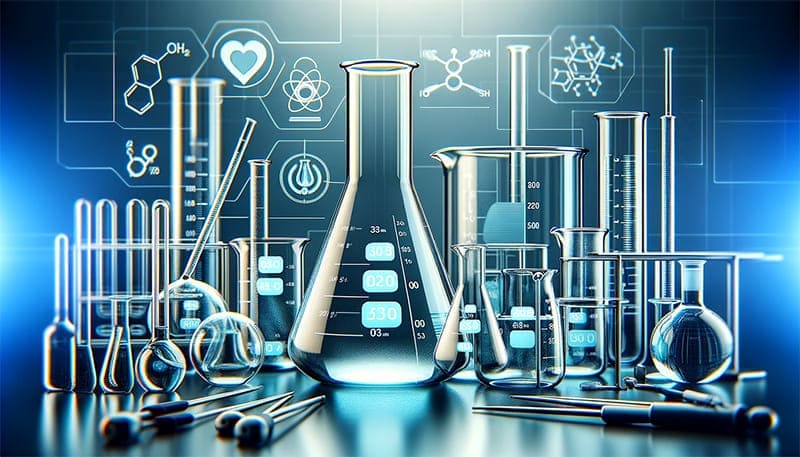
Expert Strategies for Minimizing Glassware Errors
To minimize glassware errors, consider the following strategies:
- Selecting Appropriate Glassware: Different models and specifications of glassware have varying degrees of accuracy and performance. Choosing suitable glassware based on the nature of the chemicals and the requirements of the experiment is crucial. For precise measurements, high-accuracy glassware should be used.
- Conducting Blank Experiments: Blank experiments, conducted without the substance being tested, help assess the error and interference in the experimental system. By doing so, the influence of systematic errors and interferences can be eliminated, improving the accuracy of the results.
- Regular Calibration: Ensure that all glassware is regularly calibrated against standard measurements. This can significantly reduce systematic errors.
- Proper Cleaning: Residues and contaminants can alter the volume of glassware. Implement a rigorous cleaning protocol to maintain purity and accuracy.
- Handling and Storage: Mishandling can lead to scratches or chips. Store and handle glassware carefully to avoid physical damage.
- Recording Detailed Experimental Data: Detailed records of experimental data, including reagent quantities, temperatures, and timings, should be maintained. Analyzing this data helps better assess the impact of errors and interferences, thereby enhancing the reliability and accuracy of the experimental outcomes.
By incorporating these strategies, researchers can significantly reduce the risks associated with glassware inaccuracies.
Addressing Interference in Experiments
Interference can come from various sources, including chemical reactions, environmental factors, or equipment malfunctions. To ensure the purity and accuracy of your experiments:
- Avoiding Interfering Substances: It’s essential to avoid chemicals or additives containing substances that might interfere with the experiment. For instance, certain metal ions, oxidizers, and reducers may react with the substance under examination or interfere with the results. Careful selection of reagents and additives is necessary to ensure they are free from interfering substances.
- Control Environmental Variables: Factors such as temperature, pressure, and light can affect the outcome of experiments. Maintain a consistent environment to reduce the impact of temperature, humidity, and other factors. For example, in colorimetric analysis, temperature, luminosity, and wavelength should be regulated to ensure accuracy and reliability of the results.
- Use High-Quality Reagents: Ensure that all chemicals and reagents are of the highest purity to avoid introducing contaminants.
- Regular Equipment Maintenance: Keep all equipment in optimal condition to prevent malfunctions or inaccuracies.
Implementing these measures will contribute significantly to minimizing interference and maintaining the integrity of your experimental results.

Nurturing a Proactive Approach to Problem Solving
Achieving flawless chemistry is not just about reacting to errors as they occur but anticipating and preventing them before they happen. A proactive approach involves understanding the entire lifecycle of glassware and experimental procedures and implementing preemptive measures. This section delves into the importance of foresight and prevention in maintaining the highest standards of accuracy and precision.
Anticipating Common Pitfalls
Forewarned is forearmed. By understanding the most common sources of error in laboratory settings, you can take steps to avoid them:
- Material Wear and Tear: Be aware of the lifespan of glassware and replace it before it leads to errors.
- Environmental Fluctuations: Monitor lab conditions continuously to preemptively adjust for changes in temperature or humidity.
- Chemical Interactions: Be knowledgeable about the chemicals being used and how they might interact with the glassware, potentially leading to contamination or damage.
Anticipating these and other pitfalls is crucial in maintaining an error-free environment.
Integrating Quality Control in Every Step
Quality control should not be an afterthought or a final step but integrated throughout the entire experimental process:
- Design Phase: Incorporate error-minimization strategies right from the experimental design phase.
- Procurement: Choose high-quality, reputable suppliers for glassware and reagents.
- Pre-Experiment Checks: Implement a checklist to ensure all glassware and equipment are in optimal condition before beginning any experiment.
Integrating quality control at every step reinforces the commitment to accuracy and precision.

Behavioral Aspects in the Laboratory
Laboratory Mindfulness: Enhancing Precision in Glassware Usage
Mindfulness and Attention to Detail: In laboratory settings, the precision and accuracy of results depend significantly on mindfulness and attention to detail. Mindfulness in the lab involves being fully present and aware of the tasks at hand, ensuring that each step, from measuring to cleaning glassware, is performed with utmost care and precision. Detail orientation means understanding the implications of every action in the process and recognizing the importance of seemingly minor steps in the overall accuracy of experiments. By cultivating these behaviors, scientists and technicians can significantly reduce errors and enhance the quality of their work.
Cultivating a Positive Error Culture in Scientific Research
Embracing Errors as Opportunities: Creating a positive error culture is crucial in a high-stakes environment like a scientific laboratory. A constructive approach to mistakes involves shifting from a mindset of blame to one of learning and improvement. Encouraging open reporting and discussion of errors allows teams to identify underlying issues, learn from each incident, and implement preventative measures. This approach not only improves the processes and outcomes but also fosters a more collaborative and innovative laboratory environment. Embracing errors as opportunities for growth and learning is key to advancing scientific research and maintaining the integrity of results.
Enhancing Skills with Advanced Simulation Training for Glassware Handling
Simulation-Based Training: In the pursuit of minimizing errors in glassware handling, virtual reality (VR) and other simulation tools stand out as revolutionary training methods. These advanced technologies allow personnel to practice and master the delicate techniques of glassware handling in a risk-free, virtual environment. Simulation training replicates the real-world scenarios and complexities encountered in a lab, enabling trainees to learn, make mistakes, and correct their techniques without wasting resources or risking actual experiments. This hands-on, immersive experience is invaluable for developing the finesse and confidence needed for precise glassware handling, significantly reducing the potential for errors in real-world laboratory work.
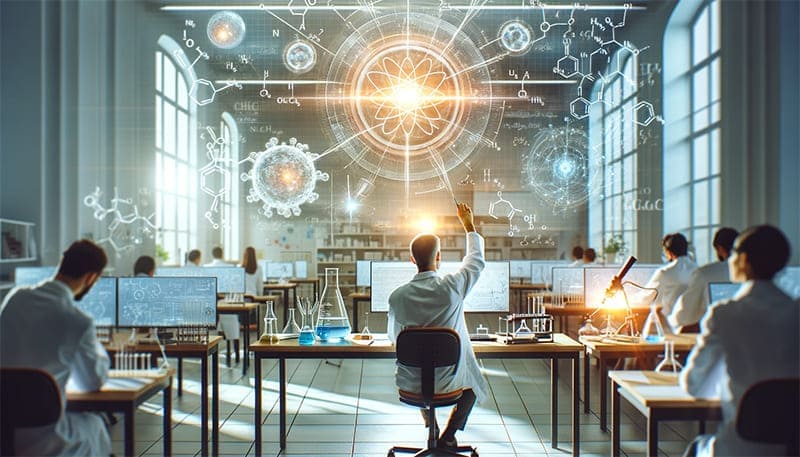
Committing to Excellence through Continuous Professional Development in Chemistry
Continuous Professional Development: The field of chemistry and glassware technology is ever-evolving, with continuous advancements and innovations. For professionals in this field, staying updated with the latest techniques, materials, and error minimization strategies is not just beneficial, it’s essential. Continuous professional development (CPD) programs provide scientists and laboratory technicians with the knowledge and skills needed to stay at the forefront of their field. Through workshops, seminars, courses, and webinars, professionals can learn about the latest research, tools, and best practices. This commitment to ongoing learning ensures that personnel are not only competent but also excel in their roles, leading to higher quality standards and fewer errors in laboratory practices.
Continual Vigilance: The Ongoing Journey Towards Perfection
In the pursuit of flawless chemistry, the journey never truly ends. Vigilance and continuous improvement are not just strategies but a mindset that must permeate the laboratory culture. Each scientist, technician, and student must embrace the ethos of precision and care in every aspect of their work. This section explores further strategies and mindsets that are pivotal in minimizing glassware errors and interference in experiments.
Conclusion
Embark on a journey of scientific excellence and embrace the culture of precision and vigilance in your laboratory practices. Let “Flawless Chemistry: Expert Strategies to Minimize Glassware Errors and Interference” be your guide to reducing errors, enhancing accuracy, and upholding the highest standards of research. Commit to continuous improvement, embrace innovation, and strive for the pinnacle of perfection in every experiment. The path to flawless chemistry begins here—equip, educate, and excel!


